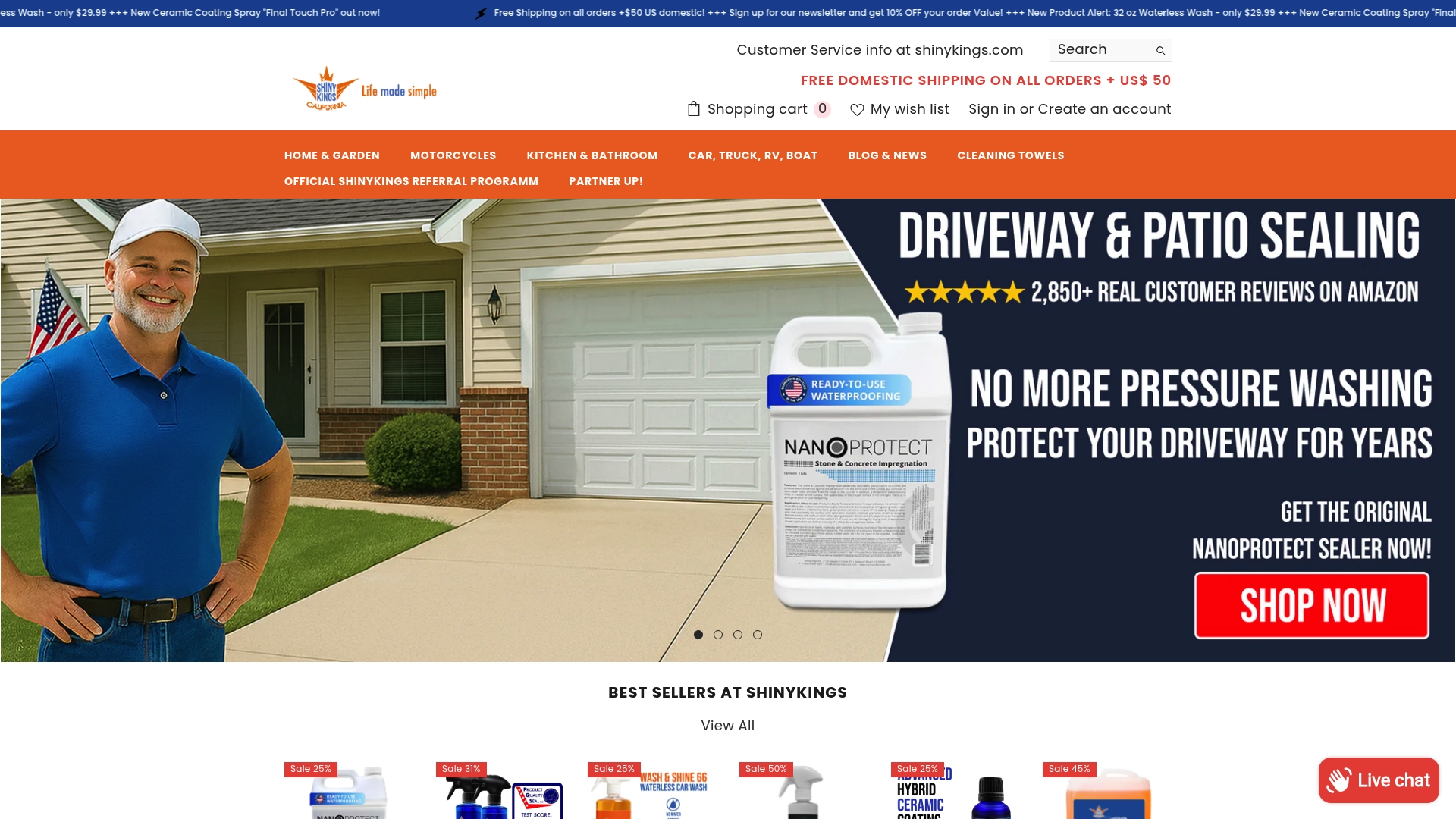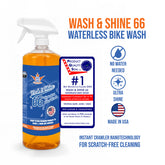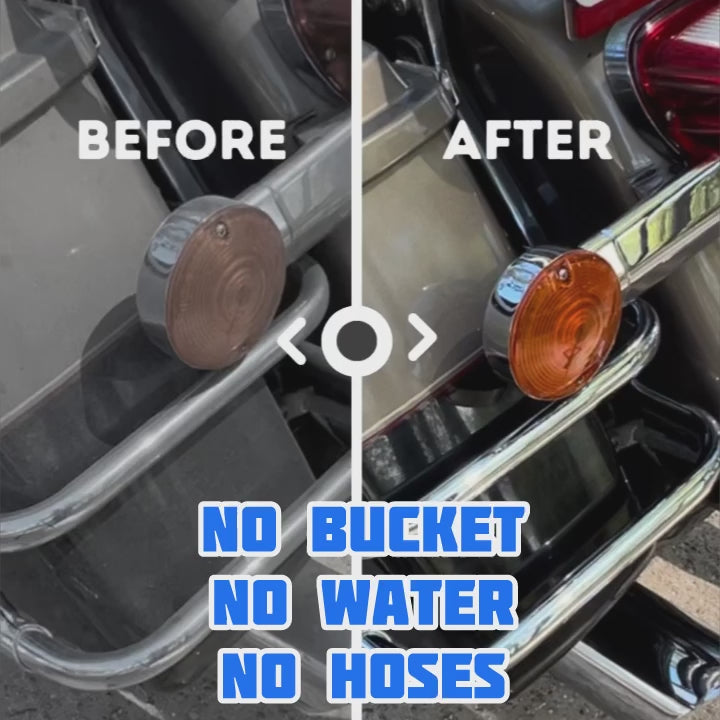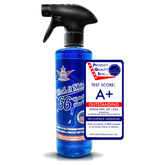Understanding Glass Coatings in Auto Care for Car Owners
Glass coatings are changing how drivers protect their cars. Some coatings last up to 3 years, outliving traditional wax by more than 15 times. Surprised? Most people think a quick wax or sealant is enough. Truth is, modern glass coatings use nanotechnology to bond with your windows in ways old-school treatments simply cannot touch.
Table of Contents
- What Are Glass Coatings And How Do They Function?
- The Importance Of Glass Coatings In Vehicle Maintenance
- Comparing Glass Coatings To Traditional Wax And Sealants
- Real World Benefits Of Glass Coatings For Car And Motorcycle Owners
- Key Concepts And Technologies Behind Glass Coatings
Quick Summary
| Takeaway | Explanation |
|---|---|
| Invest in glass coatings for long-term protection. | Glass coatings provide up to three years of durable protection, far surpassing traditional waxes that last weeks. |
| Enhance safety and visibility with hydrophobic properties. | Hydrophobic surfaces repel water, improving visibility and reducing glare during adverse weather. |
| Reduce maintenance costs and extend glass lifespan. | Professional glass coatings decrease cleaning frequency and windshield replacement, preserving vehicle value over time. |
| Glass coatings enhance optical clarity on automotive glass. | These coatings prevent micro scratches and maintain clarity, critical for driver visibility and safety. |
| Embrace advanced nanotechnology in vehicle care. | Glass coatings utilize nanoscale technology to create a strong chemical bond, protecting against various environmental factors. |
What are Glass Coatings and How Do They Function?
Glass coatings represent a sophisticated automotive surface protection technology designed to provide comprehensive defense against environmental challenges. In the realm of auto care, these specialized treatments transform ordinary glass surfaces into resilient barriers that resist damage, maintain clarity, and enhance overall vehicle aesthetics.
The Science Behind Glass Coating Technology
At its core, glass coating technology involves applying a nanoscale protective layer directly onto automotive glass surfaces. These coatings are typically composed of advanced ceramic or silica-based compounds that chemically bond with the glass substrate, creating an incredibly thin yet robust protective membrane. Learn more about our innovative glass coating solutions.
Key characteristics of high-quality glass coatings include:
- Extreme durability and resistance to environmental degradation
- Enhanced hydrophobic properties that repel water and contaminants
- Improved optical clarity and reduced surface tension
- Protection against UV radiation and minor scratches
Functional Mechanisms of Glass Coatings
The functional mechanism of glass coatings relies on sophisticated molecular interactions. When applied, these nanotechnology-driven solutions create a molecular bond that effectively seals the glass surface. This process transforms the inherent properties of automotive glass, making it more resistant to:
- Water spots and mineral deposits
- Road grime and environmental pollutants
- Micro scratches from windshield wipers
- UV radiation damage
By forming a protective layer just nanometers thick, glass coatings provide an invisible shield that maintains the original glass appearance while significantly enhancing its performance characteristics.
According to research from Ceramic Pro, these advanced coatings can dramatically improve glass durability and maintain optical transparency far more effectively than traditional treatments.
Understanding glass coatings goes beyond simple surface protection. These innovative solutions represent a marriage of advanced chemistry and automotive care technology, offering car owners a proactive approach to maintaining their vehicle’s appearance and structural integrity.
The Importance of Glass Coatings in Vehicle Maintenance
Vehicle maintenance extends far beyond routine oil changes and tire rotations. Modern automotive care increasingly focuses on protecting critical surfaces, with glass coatings emerging as a crucial component in preserving vehicle aesthetics and functionality. Explore our comprehensive protection solutions to understand how advanced coatings can transform your vehicle maintenance strategy.
Protecting Visual Clarity and Safety
Automotive glass serves as more than just a transparent barrier. It plays a critical role in driver visibility, structural integrity, and overall vehicle safety. Glass coatings provide a strategic defense mechanism against environmental challenges that can compromise these essential functions.
Key protective benefits include:
- Preventing micro scratches that degrade optical clarity
- Reducing water and dirt adhesion
- Enhancing nighttime visibility
- Minimizing glare from oncoming headlights
- Protecting against UV radiation damage
Long Term Economic and Performance Advantages
Investing in professional glass coatings represents a proactive approach to vehicle maintenance. According to automotive research from Ceramic Pro, properly maintained glass surfaces can significantly extend the lifespan of automotive glass components.
Economic benefits of glass coatings encompass:
- Reduced frequency of glass replacement
- Minimized windshield wiper wear
- Decreased need for frequent professional cleaning
- Enhanced resale value through maintained vehicle appearance
By creating an invisible yet robust protective layer, glass coatings transform standard automotive maintenance from reactive repairs to preventative preservation. This approach not only safeguards your vehicle but also provides substantial long term financial and performance advantages.

Comparing Glass Coatings to Traditional Wax and Sealants
In automotive surface protection, different technologies offer varying levels of performance and durability. Glass coatings represent a significant technological advancement over traditional wax and sealant applications. Learn more about comprehensive sealing solutions to understand the evolution of protective treatments.
Performance and Durability Differences
Traditional waxes and sealants provide temporary protection, typically lasting weeks to months. In contrast, advanced glass coatings offer a revolutionary approach to surface preservation. The fundamental distinctions between these protection methods are profound:

Traditional Wax Characteristics:
- Short term protection (2-8 weeks)
- Superficial layer application
- Requires frequent reapplication
- Limited resistance to environmental factors
- Primarily aesthetic enhancement
Glass Coating Advantages:
- Long term protection (1-3 years)
- Molecular bonding with surface
- Permanent protective membrane
- Superior environmental resistance
- Enhanced functional performance
Technological Sophistication
Modern glass coatings leverage nanotechnology to create a fundamentally different protective approach. According to automotive surface protection research, these advanced treatments create a chemically bonded layer that transforms the underlying surface properties.
Key technological differentiators include:
- Nanoscale molecular structure
- Chemical bonding mechanism
- Comprehensive surface transformation
- Scientifically engineered protective properties
Where traditional waxes merely sit on top of automotive surfaces, glass coatings integrate directly with the glass substrate. This integration provides unprecedented protection against environmental challenges, UV radiation, chemical contaminants, and mechanical abrasion. The result is a dramatically more robust and long lasting solution for automotive glass maintenance.
Below is a comparison table summarizing the key differences between traditional wax, sealants, and advanced glass coatings for automotive glass protection.
| Protection Type | Typical Longevity | Application Method | Resistance to Elements | Key Benefits |
|---|---|---|---|---|
| Traditional Wax | 2-8 weeks | Superficial layer | Limited environmental resistance | Quick shine, temporary water beading |
| Sealant | Several months | Polymer-based surface film | Improved over wax, still limited | Gloss, short-term protection |
| Glass Coating | 1-3 years | Molecular/nanotechnology | Superior to both, high resistance | Long-lasting, hydrophobic, clarity |
Real World Benefits of Glass Coatings for Car and Motorcycle Owners
Vehicle owners constantly seek solutions that enhance performance, protection, and aesthetic appeal. Glass coatings represent a transformative technology delivering comprehensive advantages across multiple dimensions. Learn more about advanced nano ceramic coating technologies to understand the full potential of these innovative treatments.
Enhanced Safety and Visibility
Glass coatings directly impact driver safety by improving visual clarity and reducing environmental interference. By creating a hydrophobic surface, these advanced treatments dramatically improve visibility during challenging weather conditions.
Key safety benefits include:
- Faster water dispersion during rainfall
- Reduced glare from headlights and sunlight
- Minimized visual distortions during night driving
- Improved windshield wiper performance
- Decreased accumulation of dirt and road grime
Financial and Maintenance Advantages
Beyond immediate performance improvements, glass coatings offer significant long term economic benefits. According to automotive surface protection research, professionally applied glass coatings can substantially reduce maintenance expenses and preserve vehicle value.
Economic advantages encompass:
- Extended glass component lifespan
- Reduced frequency of professional cleaning
- Minimized windshield replacement costs
- Enhanced vehicle resale value
- Lower ongoing maintenance expenses
By investing in high quality glass coatings, car and motorcycle owners transform routine maintenance into a strategic preservation strategy. These advanced treatments represent more than simple protective layers they are comprehensive solutions designed to optimize vehicle performance, safety, and long term value.
Key Concepts and Technologies Behind Glass Coatings
Modern automotive glass coating technologies represent a sophisticated intersection of materials science, chemistry, and advanced engineering. These innovative solutions transform traditional surface protection approaches through groundbreaking molecular engineering techniques. Explore the fascinating world of hydrophobic technologies to understand the cutting edge of surface protection.
Nanotechnology and Molecular Bonding
At the core of glass coating technologies lies nanotechnology a revolutionary approach that operates at microscopic scales. Unlike traditional surface treatments, these advanced coatings create permanent molecular bonds with automotive glass surfaces, fundamentally altering their inherent properties.
Key nanotechnology characteristics include:
- Molecular scale engineering (1-100 nanometers)
- Permanent chemical bonding mechanism
- Comprehensive surface transformation
- Precise molecular structure manipulation
- Enhanced surface performance attributes
Chemical Composition and Functional Mechanisms
Glass coatings leverage complex chemical formulations designed to provide comprehensive protection. According to automotive surface protection research, these advanced treatments typically incorporate specialized compounds like silica, ceramic particles, and proprietary nano polymers.
Critical functional mechanisms involve:
- Creating ultra thin protective membranes
- Developing strong covalent surface bonds
- Generating hydrophobic and oleophobic properties
- Blocking environmental contaminant penetration
- Maintaining optical transparency
By integrating advanced scientific principles, glass coating technologies deliver unprecedented levels of surface protection.
The following table organizes the main technological features and benefits of glass coatings, highlighting how each contributes to vehicle maintenance and performance.
| Feature/Property | Description | Benefit to Car Owners |
|---|---|---|
| Nanotechnology | Utilizes nanoscale silica or ceramic compounds | Forms molecular bond for lasting protection |
| Hydrophobic Effect | Causes water and contaminants to bead and roll off | Improved visibility and easier cleaning |
| UV Radiation Resistance | Shields glass from ultraviolet rays | Prevents discoloration and degradation |
| Scratch Resistance | Protects against micro scratches from wipers and debris | Maintains clarity and extends glass lifespan |
| Molecular Bonding | Chemically adheres to glass creating an ultra-thin membrane | Durable, long-term defense |
| Enhanced Optical Clarity | Maintains original glass transparency | Critical for driver safety and aesthetics |
Experience True Clarity and Lasting Protection for Your Car Glass
Are you tired of dealing with water spots, streaks, and fading clarity on your car’s glass? As you learned in this article, glass coatings offer advanced hydrophobic protection, unmatched resistance to scratches, and help maintain visibility in all weather conditions. At ShinyKings Car Cleaning, Ceramic Sprays & SiO2 Sealants, we provide world-class glass coating solutions specifically designed for car owners who want clearer vision, longer-lasting shine, and real peace of mind.

Upgrade your car’s glass protection today and drive with confidence, knowing your investment is shielded by leading-edge technology. Discover more innovative options for car care at ShinyKings and take the first step to superior glass care now. See for yourself the difference real science-backed coatings can make. Visit our Car Care Collection and choose the ultimate protection for your vehicle’s glass.
Frequently Asked Questions
What are glass coatings in auto care?
Glass coatings are advanced protective treatments applied to automotive glass surfaces, creating a durable barrier that resists environmental damage, enhances clarity, and improves overall aesthetics.
How do glass coatings work?
Glass coatings utilize nanotechnology to create a molecular bond with the glass surface, forming a thin yet robust layer that repels water, prevents scratches, and protects against UV radiation and contaminants.
How does glass coating differ from traditional wax or sealants?
Unlike traditional waxes that provide temporary protection and require frequent reapplication, glass coatings offer long-term protection (typically 1-3 years) through a molecular bond, resulting in superior durability and environmental resistance.
What are the benefits of applying glass coatings to my vehicle?
Key benefits include improved safety through enhanced visibility, reduced maintenance costs, protection against scratches and contaminants, and extended lifespan of automotive glass components.




